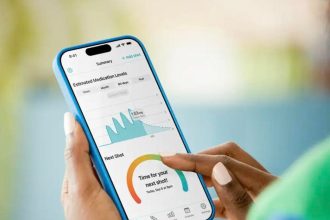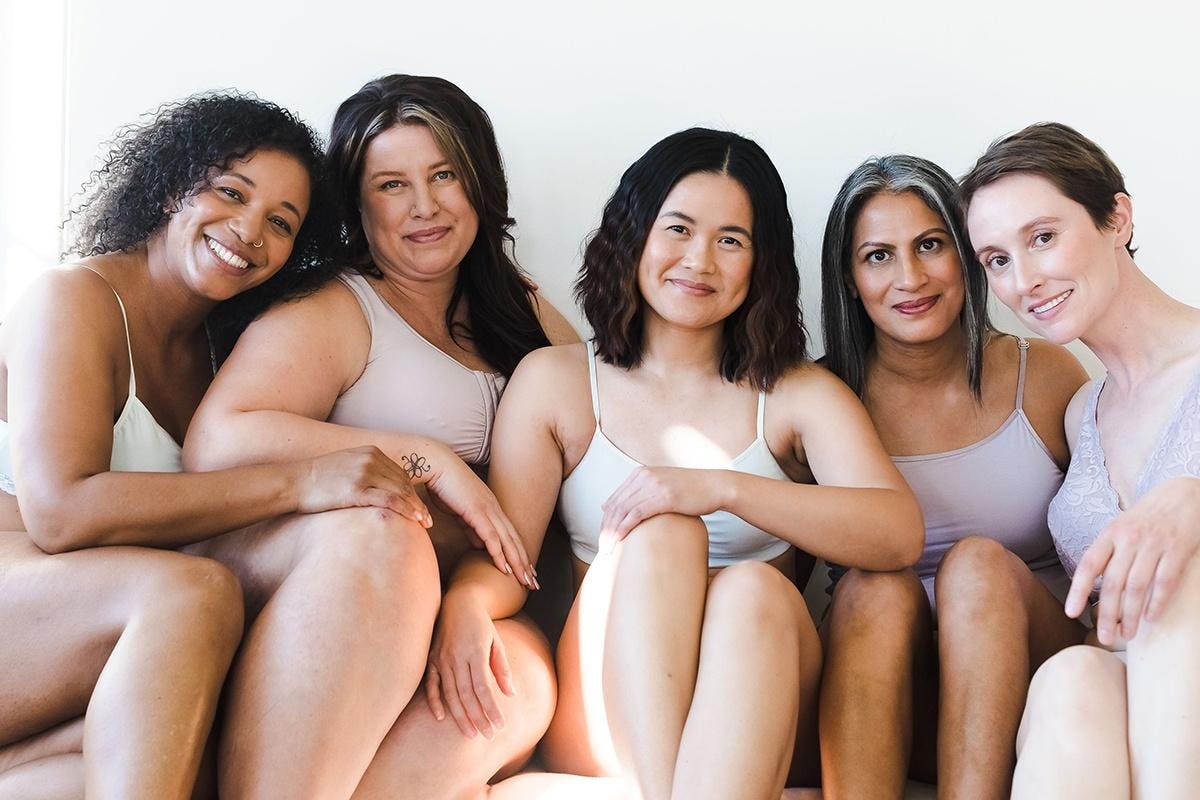Everviolet, an adaptive wear brand for breast cancer survivors, was founded by Keira Kotler after experiencing the lack of comfortable and stylish options for post-surgery lingerie. Through extensive research and collaborations with experts, Everviolet launched and expanded its product offering to cater to the evolving needs of women recovering from cancer, surgeries, and medical treatments.
Everviolet empowers women recovering from cancer and surgeries to feel like beautiful, confident people first and patients second.
Despite facing challenges such as manufacturing setbacks during the pandemic, Kotler’s adaptability, resilience, and willingness to consult experts enabled the company to thrive.
Now seeking outside financing to scale, Everviolet aims to make a greater impact in the adaptive wear market while promoting sustainability and empowerment for women. It recently won a grant from IFundWomen and BOTOX Cosmetic, is undertaking a rewards-based crowdfunding campaign on IFundWomen, and will seek venture capital.
The Inspiration Behind Everviolet’s Adaptive Bras For Breast Cancer Survivors
Entrepreneurs often “scratch their own itch.” They see a hole in the marketplace and believe they are the ones to fill it. Kotler was diagnosed with early-stage breast cancer, but it had already spread extensively. She chose a bilateral mastectomy in 2012 and, fortunately, hasn’t needed further treatment.
“Imagine my surprise when getting dressed in the morning became one of the hardest aspects of the journey. My old lingerie no longer fit,” Kotler growled. “The pieces that were designed for post-surgery were synthetic, scratchy, ugly. It really felt like adding insult to injury.”
After trying 200 bras over six months, Kotler started speaking with other women and discovered this was a universal challenge—not just for women who were recovering but for women who were decades-long survivors. “There was no brand that met their evolving needs,” she sighed. Yet, the adaptive wear market is forecast to be $331.9 billion in the U.S., according to Statista.
Anecdotal evidence is good, but for a long-time marketer, it’s not enough to base launching a company in the adaptive wear space. Over the next year and a half, Kotler conducted focus groups and surveys. She designed and wear-tested the bras not once but twice.
Everviolet launched the company as an e-commerce brand and expanded from a direct-to-consumer brand sold on its website to omnichannel distribution, including selling through online marketplaces, brick-and-mortar retailers, televised direct response, partnership with patient advocacy groups, and recommendations of the medical community.
Trusted medical professionals such as surgeons, oncologists, and nurses recommend Everviolet bras. The bras are sold in Nordstrom, which created a program to serve the needs of women dealing with breast cancer or surgery. The company’s lingerie is featured in QVC’s new adaptive category on their website and partners with nonprofits. For example:
- In Everviolet’s Share The Love program, 10% discounts are offered to members of several nonprofit communities, and then the company donates 10% of those sales back to the organization.
- Everviolet has donated items to the National Breast Cancer Foundation Hope Kits.
- Everviolet co-hosts fundraising events to support nonprofits.
- Participating in cause marketing campaigns throughout the year to support nonprofits doing breast cancer research and prevention.
- Donate bras to women who cannot afford them through various organizations.
It’s expanded its product line from bras to other lingerie, including recently launching Maia Boy Short, addressing sensitivities following pelvic, gynecological, and colon cancers, C-sections, and hysterectomies as well as women who need ostomy bags.
The apparel industry is one of the most toxic. As a health and wellness brand, Everviolet is all about sustainability, from ensuring the fabric is breathable and soft and that the lingerie is made in a completely responsible way.
“For me, coming out of illness, I just wanted everything around me to be clean,” said Kotler. Even the packaging and shipping materials are made from recycled and recyclable materials. Products are manufactured in small batches and shipped weekly so everything is sold and nothing ends up in a landfill.
Resilience Is Key To Overcoming Personal and Business Challenges
Kotler is a marketer who knows how to build brands and sell online but has no apparel design and manufacturing experience. She needed to surround herself with people who are experts. Kotler brought in Meghan Sweeney Langston, who has more than 25 years in retail manufacturing, sourcing and product design, development and production. Kotler and Sweeny Langston work with technical designers who turn their creative visions into patterns that can be manufactured.
Her advisory board includes people who have worked at retail giants and big tech companies and are branding, medical, and legal experts. They play a pivotal role in guiding Everviolet’s strategic decisions, shaping its future direction, and ensuring its continued success. Their collective wisdom, diverse perspectives, and strategic guidance will enable the company to make informed decisions, identify emerging opportunities, and overcome challenges with confidence.
During the pandemic, Everviolet lost its supply chain. Finding a cost-efficient replacement in the U.S. proved impossible. Instead, a Mexican manufacturer, which originally turned down doing business with a startup, heard about Everviolet’s traction. A salesperson reached out to Kotler. In six months, they were back up and selling.
Kotler bootstrapped the company but, to scale, she needs outside financing.
In June, Everviolet was one of 20 companies to win a $25,000 grant, plus coaching and mentorship from IFundWomen and Botox Cosmetic. More than 6,500 had applied. The company is currently doing a rewards-based crowdfunding campaign on IFundWomen and will be raising venture capital.
What obstacles have you overcome in launching and growing your business?
Read the full article here





